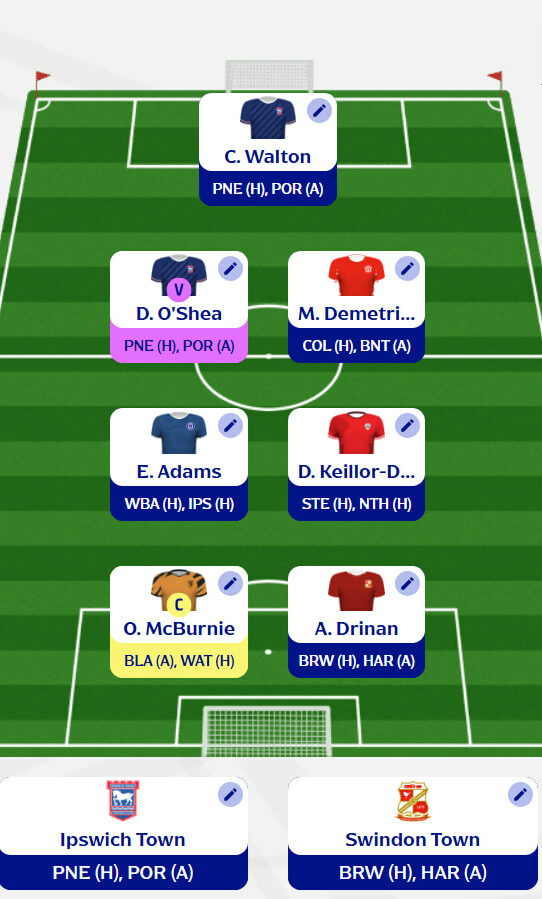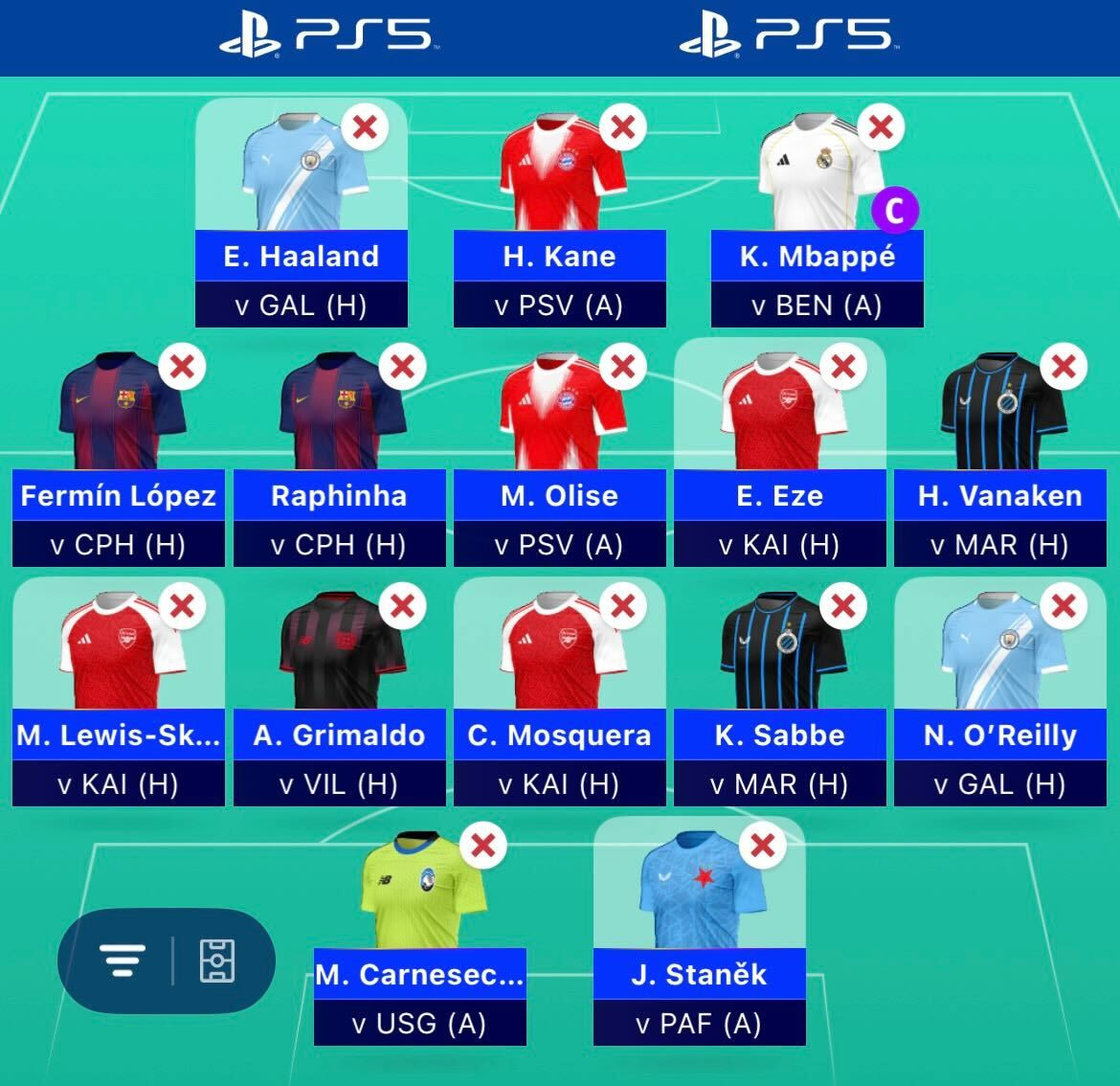We are about to witness the introduction of some of the most impactful rule changes in the Premier League for a long while.
And it’s something that could have a huge impact on Fantasy Premier League (FPL) assets: the new rules surrounding extra injury time.
It is hard to plan around these new changes as we are moving into uncharted territory but below we will talk through some possible impacts on players and trends to keep an eye on to help with your FPL teams.
SIGN UP HERE FOR ALL THE TOOLS YOU NEED TO WIN AT FPL!
What are the rule changes?

In a bid to tackle time wasting, the International Football Association Board (IFAB) have introduced tougher laws into the game. Match officials have been told to add the exact time taken for time-wasting events rather than the “nominal” amount they have previously.
FIFA have overseen this change as they have long been concerned about how long the ball is in play for and that time-wasting tactics make football boring. There is some proof of this: in the Premier League last season the ball was only in play for 55.9% of match time up to the World Cup break.
This means that we are likely to see most matches go over the 100-minute mark. The impact is something that we witnessed at the 2022 World Cup where we saw unusually long matches; England fans will remember the match time of the huge win over Iran ran into 117 minutes and 16 seconds.
There has also been another impactful rule change around cautions. We may be seeing a lot more of them in the Premier League, or at least initially until players have learned to keep calmer temperaments. Going forward, players will be cautioned for dissent if any player runs from a distance to approach any match official. Also, teams surrounding referees should be a thing of the past as if more than one player surrounds the referee, then each extra player can potentially be carded.
Finally, penalty mind games are over. If a goalkeeper does not behave in a “respectful” manner to the penalty taker, then they will also be shown a yellow. This includes actions that could be “unfairly distracting to the kicker” which means delaying the kick, touching the goalposts, crossbar or net.
So the advice here for FPL players is to be careful about selecting players who are particularly “vocal” in discussing their concerns with referees. It means that you will have to keep an eye on how quickly they rack up cards, but that doesn’t mean you should totally avoid them.
The impact of the increase in time rules

Last weekend, we were given a glimpse into how new rules may affect Premier League matches.
With the Football League starting a week earlier than the top flight, we saw a massive impact. Of the 35 games that took place, only two lasted less than 100 minutes. The longest game of the weekend was Northampton vs Stevenage, which lasted 112 minutes and 36 seconds.
The extra added time also saw more goals scored, which is probably a reason to go cheap on defensive assets this season and have a beefy attack. A total of 15 goals were scored in the injury time this weekend across all the Football League matches, which was around 14% of goals scored in matches.
Then there was the Community Shield, with Arsenal scoring in the 11th minute of added time to force penalties.
This disproportionate amount of goalscoring is something that we have also witnessed in the World Cup. As opposed to one weekend of high variance goal scoring, we do have the whole 2022 tournament which gives us an insight into how much impact all this extra time played has. Looking at comparing recent World Cup scoring data we can see a huge rise in late goals in the most recent tournament.
The share of stoppage-time goals has more than doubled in a decade: 5.6% of goals came from injury time in the 2010 edition of the World Cup, whereas in Qatar 2022 we saw a record 12.6% arriving late in matches.
There is a huge amount of data and science to show how impactful late-game states are on goals scored, due to the physiological factors that affect the output of players. The most recent research from Dr Liam Harper at Manchester Metropolitan University analysed the impact of these extra-long games at the World Cup. His study showed that at Qatar 2022, there was a “reduction” in skilled performance actions in the late stages of these prolonged matches. His findings were:
“Skills like pass completion percentage and dribble accuracy don’t change much but the actual number of those actions decreased in this time period.
“Our findings are backed up by other research that suggests the amount of high speed running and sprinting, as well as more moderate intensity running, also reduce during extra time when compared to the usual 90-minute game”.
Some teams have taken preventative actions to combat this. Burnley had a record early start to their pre-season. Teams like Liverpool and Newcastle have drafted in AI data companies that will help manage player workloads in order that their players stay fresher for longer through the season.
The impact will not just be on single games, though – there is also a serious issue of potential squad injuries. Teams are taking this seriously and we may see more conservative management of players through the season. Raphael Varane has raised the very serious concern that this is another encumbrance of footballers who are already playing record amounts of games and getting the largest amounts of exposure time they have ever had. This may mean that we see more squad rotation this year as teams look to manage their players carefully and not get injuries.
How to combat the rule changes in FPL

First of all, we will have to make sure we have strong-ish benches in case injuries do spike. Sometimes it is easy to overlook the assets we have on there as our starting XI looks strong. But due to the mid-season World Cup in the 2022/23 campaign, we had stronger but inexpensive benches which helped the squad management before and after the tournament.
Targeting those who see out every match is an obvious way to go. In a way, this may be a good thing for FPL as the Erling Haaland (£14.0m) perma-captaincy may be challenged and we have more choices that may need to be reconsidered. Haaland has a high ceiling but also last season he was regularly substituted due to the strength of the Manchester City squad.

Above: FPL’s leading points scorers of 2022/23 and their appearance information
Haaland played 2770 minutes, or the equivalent of 30.8 ’90s’. Compare this to Mohamed Salah (£12.5m) who played 3290 mins (36.6 ’90s’) or Kieran Trippier (£6.5m) who played 3333 mins (37.1 ’90s’). As we have seen from the data, being involved in the late-game stages increases your chance of getting a goal as there is a disproportionate amount netted in injury time. Salah may have more of a say in the captaincy conversation again purely due to his ever presence on the pitch for Liverpool.
It’s a bit of a shock to see how many times Martin Odegaard (£8.5m) was subbed off – but when he was withdrawn, it tended to come later in the game.
Another area we may see big point hauls from are the so-called “super-subs”. Those who come on late in games may now get 30-40 mins to impact a game, almost a whole half, rather than the previous 10 or 20 mins. Against tired legs and a fatigued defensive line, they may perform well. Individuals like Leandro Trossard (£7.0m) and Julian Alvarez (£6.5m) become much more interesting as they are likely to come on and maybe get some good chances. There may also be increased utilisation of substitute benches, as we have the five-substitute law in place from last season.

Above: The Premier League players with the most ‘sub on’ appearances in 2022/23
Do Man City defenders become more attractive, too? They can already boast of having the best expected goals conceded (xGC) tally last season and now, as the graphic from Opta below shows, they may be less likely to be involved in 100+ minute games as the ball is already in play a lot longer. Not as much added time = less chance of their clean sheets going bust?
Contrast that with Newcastle, who may be harder hit by stoppage-time additions.

Finally, look at the teams who have great injury management.
Newcastle had the highest availability rate in Europe’s top five leagues last season with a near-record 10 players having 3000+ mins on the pitch. Compare that to teams like Chelsea struggled with injuries and had the most days lost and most time loss injuries in the 2022/23 campaign. This may make you less likely to take a gamble on someone like Reece James (£5.5m), who has a poor injury history and may be managed carefully due to higher exposure levels this season. Minimise your risk and go with hardy players.
Conclusion

To summarise, we cannot be sure of the impact of the new rules on the Premier League without seeing it firsthand. But from what we have already witnessed at the World Cup, it seems likely there will be more goals scored late in games – and so, therefore, fewer clean sheets. Big at the back is now a much harder sell as large, exciting scorelines are probably likely to come into the game.
Monitor the effects through the season and this may also impact the timing of your Wildcard or your choices when you finally pull the trigger. Strategies may become clearer as the season goes on but initially, targeting those who see out games for their clubs may be the best way to capitalise on the late goals.
Also, be as risk-averse as possible. Do not get in players with bad injury histories as they could be more carefully managed this season.
- READ MORE: FPL Gameweek 1 team news and injury updates
- READ MORE: Win £10k of prizes with Fantasy Football Scout in 2023/24!



